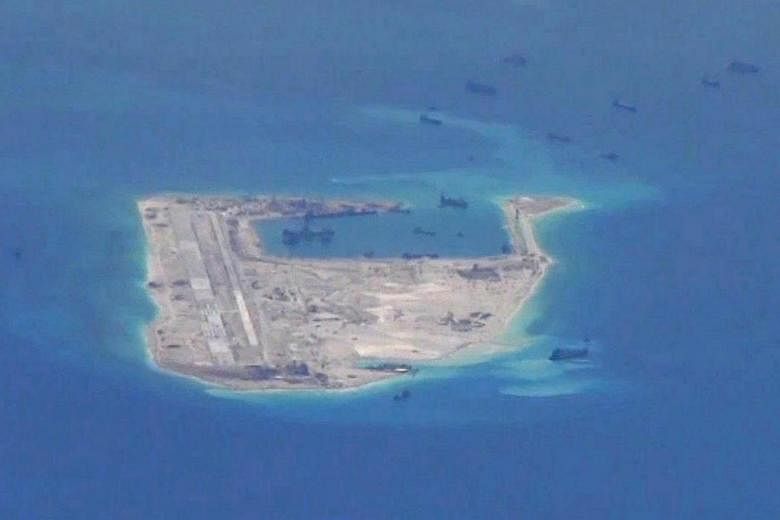Asean member-nations and China have completed a draft framework for a code of conduct (COC) in the South China Sea, but it is unclear if the eventual document will be legally binding.
Chinese Vice-Foreign Minister Liu Zhenmin announced the agreement on the draft framework after co-chairing a senior officials' meeting yesterday in Guiyang, in south-western Guizhou province.
Senior officials from both sides said the negotiation of the draft COC framework was completed ahead of the mid-2017 deadline.
"The draft COC framework will be submitted to the foreign ministers during the Asean-China post-ministerial conference in August in the Philippines for their political support," Singapore's Ministry of Foreign Affairs Permanent Secretary Chee Wee Kiong told a press briefing.
Singapore has been the country coordinator of Asean-China dialogue relations since 2015, and will hold the post until next year.
The draft framework will form the basis for the next phase of negotiations, where all parties will discuss the specific contents of the COC, said Mr Chee, who is the other co-chair.
Asked whether the COC will be legally binding, Mr Liu said: "I cannot give you a definite answer now."
He added: "I am sure it will be a very important point of discussion in future consultations."
Mr Liu said the draft framework will remain an internal document and that none of the 11 countries involved is allowed to release it to the public as negotiations are still ongoing.
"We also don't want any outside interference in this process," he added.
A COC has been in the making since the Declaration on the Conduct of Parties in the South China Sea was signed in 2002.
However, formal talks began only in 2013 after Manila filed a case against Beijing at an international tribunal on overlapping territorial claims in the South China Sea. Three other Asean countries - Vietnam, Malaysia and Brunei - as well as Taiwan also claim parts of the disputed sea.
In the three years that followed, progress had been slow, in part due to a lack of consensus in Asean and China's reluctance to move things forward.
Negotiations started to speed up last July after Chinese Foreign Minister Wang Yi suggested setting an official timeline to conclude talks on the COC framework by the first half of this year.
This came after the international tribunal's ruling that rejected China's claims to nearly all of the South China Sea.
Iseas-Yusof Ishak Institute analyst Tang Siew Mun noted that China has always been "less enthusiastic" about a legally binding COC, and it appears that some Asean states may have leaned towards the Chinese side.
But he thinks it is not in the interest of any of the parties to agree on any outcome that is short of legally binding.
This "would provide little recourse or comfort to any aggrieved parties, including China", he told The Straits Times.

